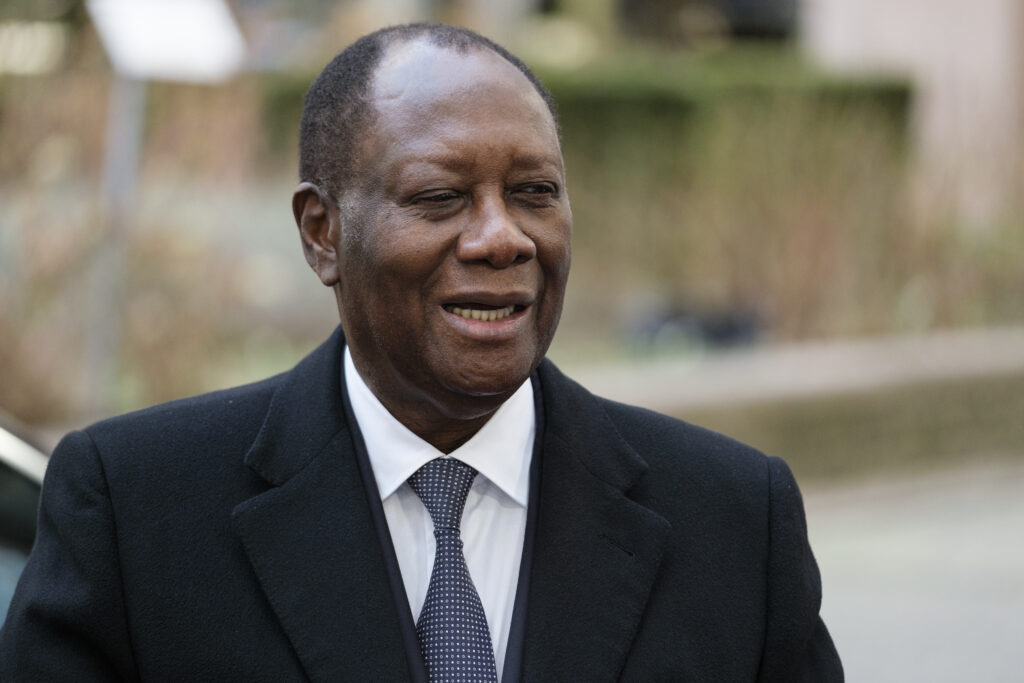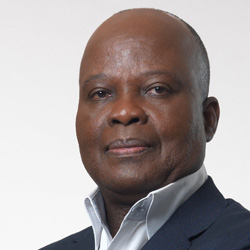Interviews / Africa/s
14 October 2025
Presidential Election in Côte D’Ivoire: Political Alternation Will Have to Wait…

Fourteen years after coming to power, Alassane Ouattara is once again running in the Ivorian presidential election, scheduled for 25 October 2025, seeking a fourth term. His candidacy, far from unanimous, reopens the wounds of a political system still marked by the personalisation of power. While the country professes its attachment to a democratic development initiated in the 1990s, the lack of political breathing space—now customary under Ouattara—diminishes its significance. On the eve of the election, Côte d’Ivoire stands at a crossroads: between loyalty to a leader perceived as a guarantor of stability and the desire for a renewed political future. Analysis by Francis Laloupo, Associate Research Fellow at IRIS.
Once again, as in 2020, Alassane Ouattara’s candidacy is controversial… What is the source of the controversy?
At the root of this controversy lies a crisis-inducing interpretation of a new Constitution adopted in 2016 and amended in 2020. At the time, the opposition had warned public opinion against an opportunistic revision of the fundamental law, one that could alter the rules in force, notably regarding presidential term limits. In response to these criticisms, President Alassane Ouattara, the architect of the reform, had assured the public that he had no intention of seeking an additional mandate at the end of his second five-year term, as prescribed by the existing Constitution. Yet it was precisely by relying on a contentious interpretation of the new Constitution that he ran again in 2020 for a third term. For his opponents, the president’s broken promise confirmed the fears of those who suspected him of wanting to “reset the clock” on presidential term limits through constitutional revision. Meanwhile, supporters of the outgoing president argued that, under the new Constitution, he was now entitled to seek two “new terms” – not to be counted cumulatively with the previous ones. These irreconcilable interpretations of the constitutional provisions have woven the fabric of an ongoing political dispute, reignited today by Alassane Ouattara’s fourth candidacy in the 2025 presidential election. While the Ivorian leader has justified his additional, contested bids by invoking “exceptional circumstances,” his decision has deepened social divisions and opened another contentious chapter in the country’s democratisation process, underway since the 1990s. The issue of Ouattara’s broken word has weighed heavily on his third term since 2020, despite an economic record generally regarded as respectable.
What does this new candidacy reveal about the democratic functioning of Côte d’Ivoire?
The democratisation process continues, albeit with its crises, interruptions, and critical phases. The 2016 constitutional revision, considering its consequences, represented a significant setback to this process. Paradoxically, however, after the 2020 crisis—and thus during Ouattara’s disputed third term—there was a notable strengthening of democratic foundations in the country. This was evident particularly in freedom of expression and media independence, within a liberalised economic environment marked by the strong stimulation of private initiative and a business sector increasingly freed from state intervention.
The Ivorian political system oscillates between active multi-partyism and a power structure inclined towards dirigisme, even authoritarianism. To justify his two contested candidacies of 2020 and 2025, Alassane Ouattara has invoked “exceptional circumstances” and a “duty to the nation”, portraying himself as a bulwark—the only one available?—against the security threats affecting the region. In doing so, he reintroduces into national discourse the myth of the providential man—an anachronism within a formally democratic system. In other words, according to him, political alternation can wait. From this perspective, Ivorian political life operates within a hybrid system, where democratic consolidation has yet to reach a mature and tested stage.
How might the system evolve despite the successive crises of recent years?
Alongside the question of alternation lies another, more philosophical one: that of certain political actors’ relationship to state power. Is it necessary—or beneficial—to cling indefinitely to power, binding one’s fate to that of a country meant to outlive its leaders? In Côte d’Ivoire, as in several emerging democracies, democratic progress will remain limited so long as it is not accompanied by the vital requirement of political breathing spaces—that is, alternation and the renewal of governing teams.
The political tensions observed over the past decade nonetheless indicate a dynamic of gradual correction within the system. Because most Ivorians seem to believe in the irreversibility of the democratic project, one can speak of a genuine national consensus around this challenge.
What are the effects of this candidacy on the balance of the political scene and the dynamics of opposition parties?
Four major parties have dominated the political landscape since the post-electoral crisis verging on civil war in 2010–2011: the Democratic Party of Côte d’Ivoire (PDCI), the oldest political organisation founded by Félix Houphouët-Boigny and long led by Henri Konan Bédié until his death in 2023, now chaired by Tidjane Thiam; Alassane Ouattara’s Rally of Houphouëtists for Democracy and Peace (RHDP); the Ivorian Popular Front (FPI) led by Pascal Affi N’Guessan; and the African Peoples’ Party – Côte d’Ivoire (PPA–CI) of former president Laurent Gbagbo.
With the candidacies of Thiam, N’Guessan, and Gbagbo disqualified for various reasons, Alassane Ouattara will be the only “major figure” standing in the 25 October 2025 presidential election. This situation is a central factor in the pre-electoral malaise that will leave a lasting mark on this new contest. Facing four lesser-known candidates*, Ouattara enters the race with near certainty of victory, confronting opposition parties that accuse him of having privatised the institutional mechanisms of the election. Once again, the 2025 presidential race will unfold under the shadow of suspicion and resentment. Beyond the immediate configuration of the contest, however, this election is likely to mark the end of an era—the one dominated for decades by Alassane Ouattara, Laurent Gbagbo, and the late Henri Konan Bédié.
A new question now looms large in Ivorian politics: the inevitable reshaping of the political landscape through generational renewal.
How is Alassane Ouattara’s new candidacy perceived, particularly among the youth?
Young and old alike have known only the same political actors vying for power since the 1990s—figures who are natural or symbolic heirs of the system established by Félix Houphouët-Boigny, revered as the “father of the nation.” Every crisis the country has endured since the late 1990s stems, in one way or another, from this unresolved or poorly settled legacy. In a country where the median age is estimated at 18, the gap between the repetitive patterns of political drama and the imagination of the youth is increasingly palpable.
In the discourse and projections of this younger generation—through the tumult of debates on social media, but also in a regional and international environment marked by ideological confusion—a powerful desire for rupture is emerging. The prospect of a controversial fourth term for Alassane Ouattara comes in a singular climate: a nation torn between the will to preserve the best of its shared history and the urge to project itself towards new definitions of collective destiny. The expression may be overused, but it is apt: Côte d’Ivoire stands, more than ever before, at a crossroads.
Candidates for the 2025 presidential election in Côte d’Ivoire:
- Alassane Ouattara, candidate of the Rally of Houphouëtists for Democracy and Peace (RHDP), incumbent president.
- Simone Ehivet, candidate of the Capable Generations Movement (MGC), former wife of President Laurent Gbagbo.
- Henriette Lagou Adjoua, candidate of the “Coalition of Political Partners for Peace” (GP-PAIX), former minister under Laurent Gbagbo.
- Ahoua Don Mello, independent candidate from the PPA–CI, former minister under Laurent Gbagbo.
- Jean-Louis Billon, candidate of the Democratic Congress coalition (CODE), businessman, from the PDCI.

